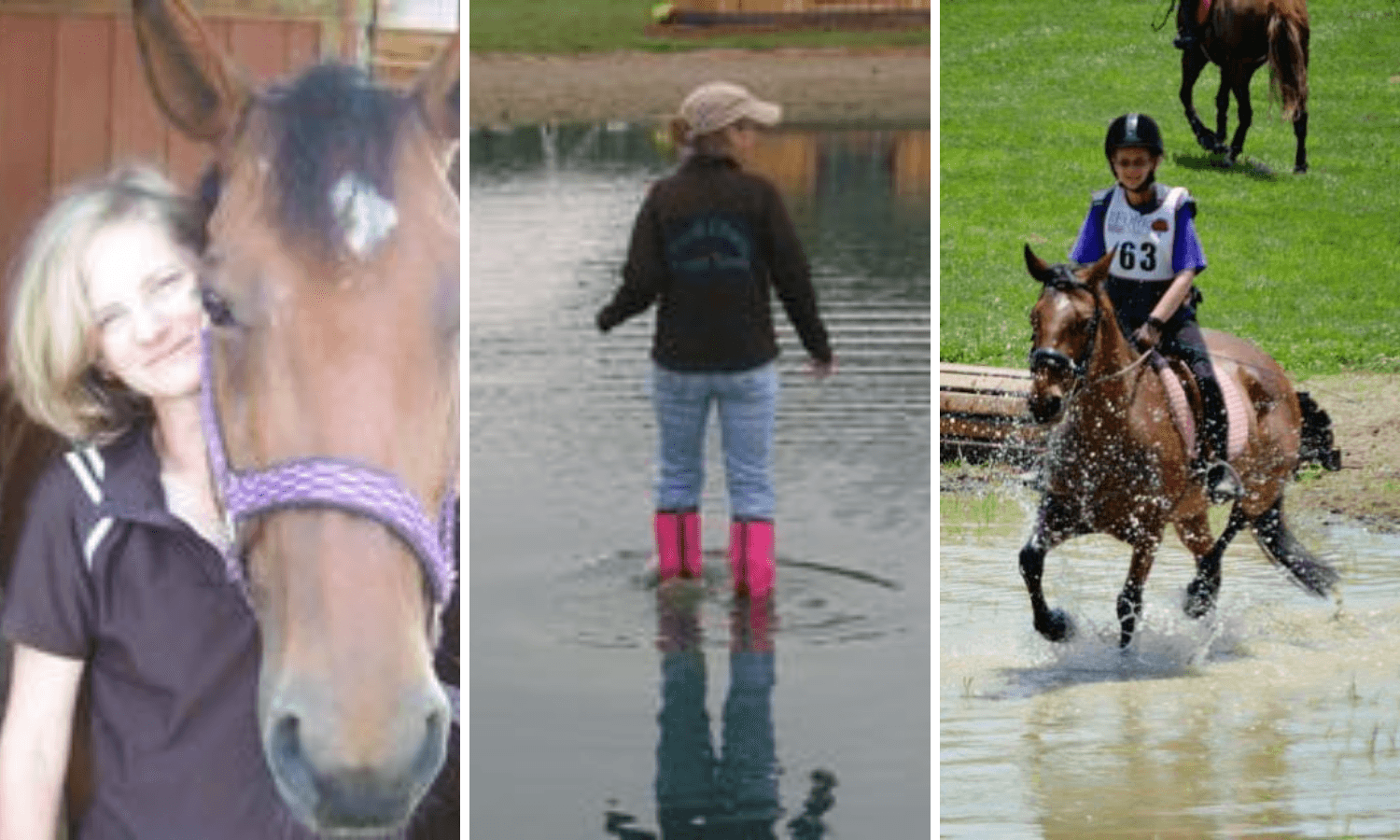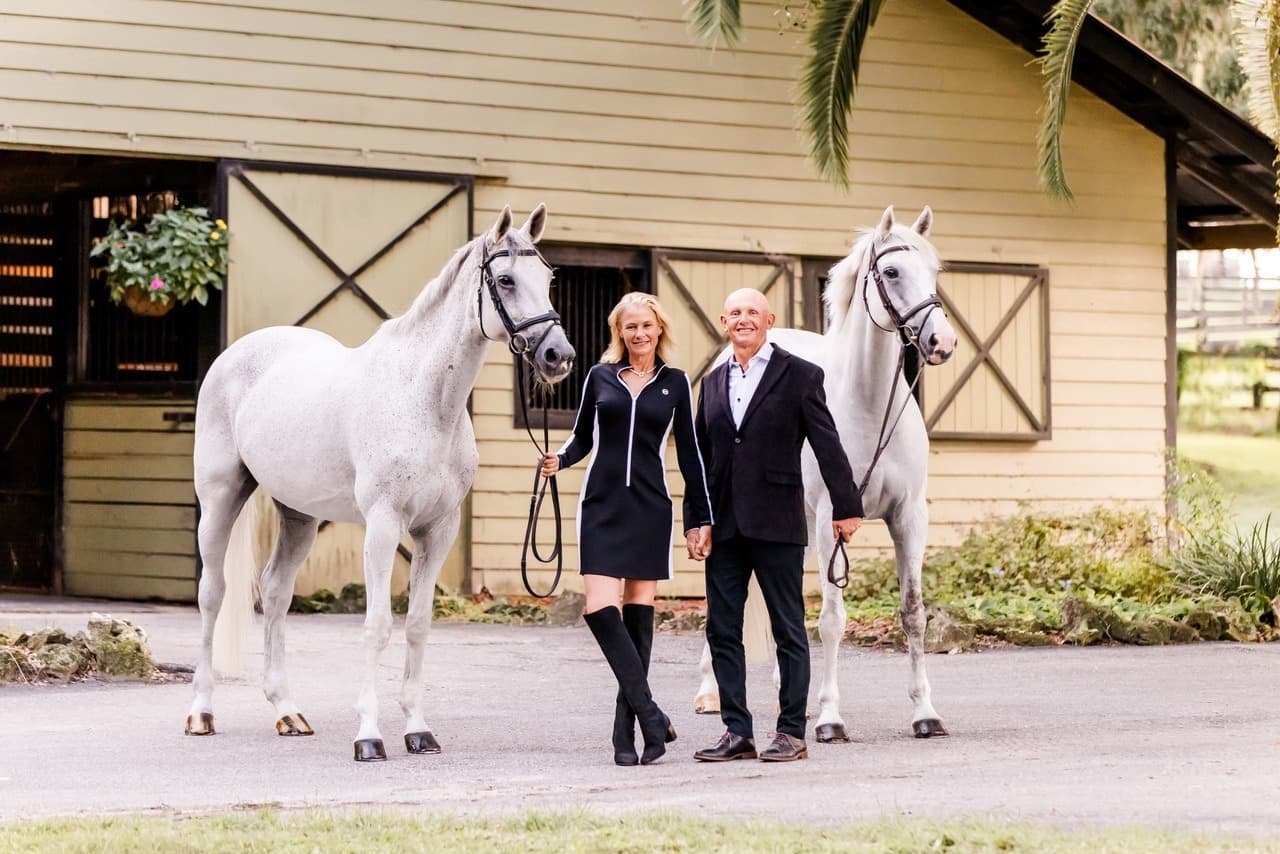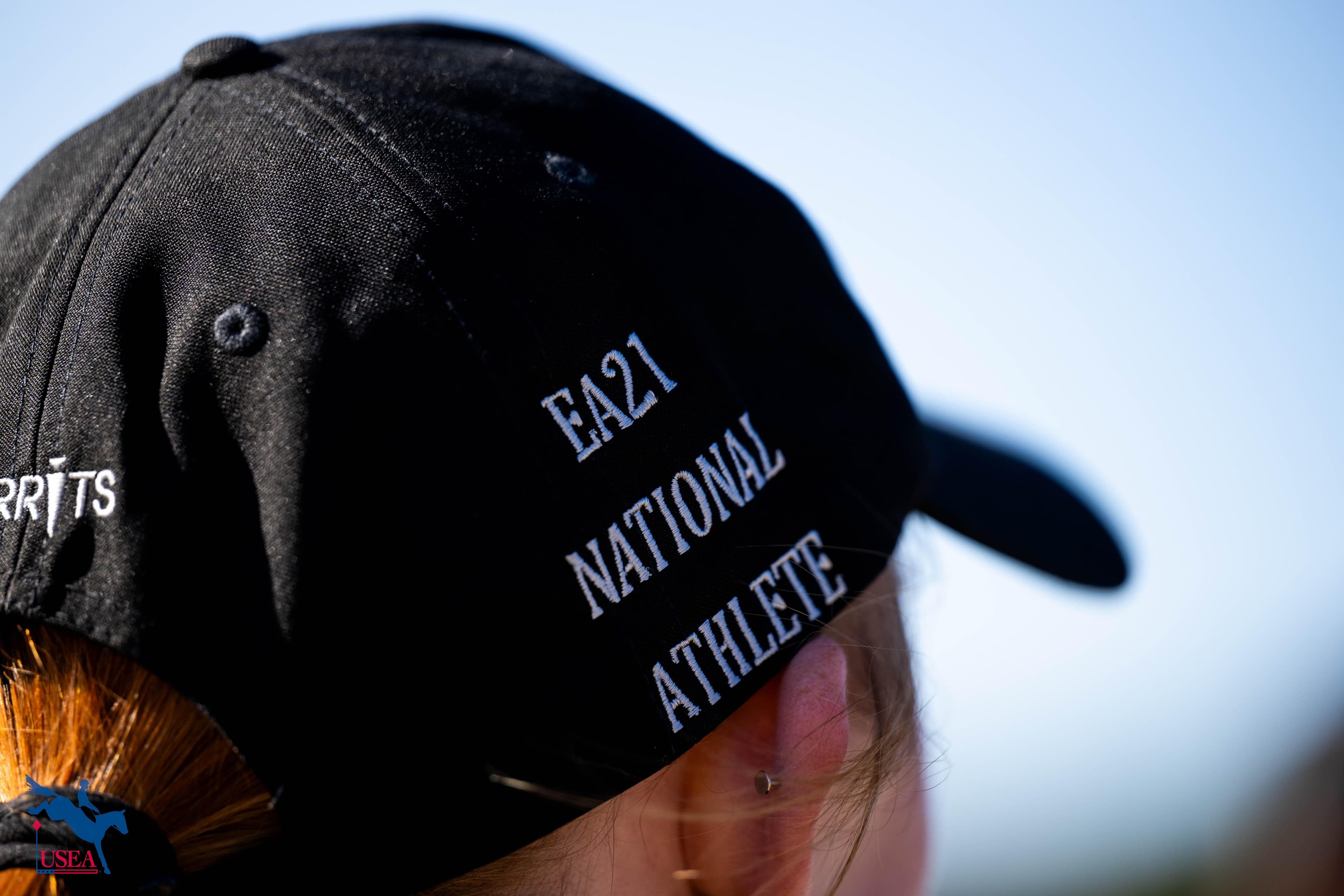The VIP Volunteer: Kimberlee Meeks

Kimberlee Meeks had just returned from a busy weekend volunteering at the Carolina Horse Park when she sat down to share her volunteering journey with the USEA. “I’ve been around eventing since the ’70s,” she shared. “We had an event at our farm, the Mars Hill Horse Trials, which the last year we had it was 1980. My uncle used to build the cross-country courses so I have been around the sport for a long, long time.”
While she was raised around eventing, she didn’t formally begin her time as a volunteer until she made the move to North Carolina in 2000 and saw a callout for jump judges at The Ark in Monroe, North Carolina. That initial outing led to over 22 years of volunteering, with Meeks having the opportunity to work at some of the country’s most prestigious events.
“I did over 10 years at the original Fork in Norwood,” Meeks reflected. “I’ve done both of the U.S. five stars. I got to work at the Maryland 5 Star where I was the ring steward for the USEA Young Event Horse 5-year-old conformation portion, which was a lot of fun, and then I was a jump judge for both Maryland and Kentucky.”
In a typical year, you can find Meeks on the cross-country course 20 weekends out of the year, but 2021 was the first year she was able to serve as a five-star volunteer. “It feels pretty special because you are picked to jump judge there,” she said of the experience. “With it being a five star, it is a whole other ball game from the other horse trials in some ways, but when you are out there it is what you do every weekend when you jump judge.”
The days might be long and the weather isn’t always favorable when you are a jump judge, but for Meeks it is worth it. Her favorite part is watching all of the different horse and rider combinations ride by, but one particular jump left a special stamp on her heart. “I used to judge the big water jump at the original Fork and I always loved that water complex. I wound up judging that for almost 10 years with another lady I volunteered with.”
While Meeks primarily jump judges, she helped decorate the stunning cross-country course at Maryland this year and will be doing so this April in Kentucky for the Land Rover Kentucky Three-Day Event. “It’s a great way to get out there and see the course,” she commented. “When you jump judge, you pretty much only see your jump. Last year was the first year I worked Kentucky. Without the spectators, I was able to see some of the other jumps from where I was, but I am not expecting that this year with the return of spectators!”
What makes Meeks sacrifice many of the weekends out of her year to volunteer? “The people, for sure. I see a lot of the same volunteers at different events. You can feel the teamwork that it takes to put on an event from the organizers down to the actual riders. There is nothing better than having one of the upper-level riders thank you for your time.”
If you are considering giving volunteering a go in 2022, Meeks had some suggestions for packing your jump judge survival kit. “I am very distinct on cross-country, I always have a pair of pink waterproof boots that live in the trunk of my car. You have to be prepared for anything and everything. I have a bag that stays packed with bug spray, sunscreen, and snacks. You always need a good chair and a good pair of boots though!”
When it boils down to it, no matter what your experience in the eventing community is like, volunteering is always a great way to get involved. “Just volunteer, even if it is just a schooling show,” Meeks commented. “Just get your feet wet first and see whether or not you like it. You can always take a look at all of the videos that the USEA has on how to jump judge to prepare, but until you actually get the experience of doing it you will never know!”
About the USEA Volunteer Incentive Program
Volunteers are the lifeblood of our sport, the unsung heroes, and the people who make it possible to keep the sport alive. In efforts to recognize the dedication, commitment, and hard work that volunteers put into eventing, USEA formed the Volunteer Incentive Program (VIP) in 2015. In 2017, an online management portal was designed for volunteers, organizers, and volunteer coordinators at EventingVolunteers.com (available as an app for iOS and Android).
Volunteer incentives include national and area recognition, year-end awards with ribbons, cash prizes, and trophies, a top ten USEA Volunteer leaderboard, and a Volunteer of the Year award which is given to the volunteer who tops the leaderboard by accumulating the most volunteer hours over the USEA competition year. Click here to learn more about the USEA Volunteer Incentive Program.














